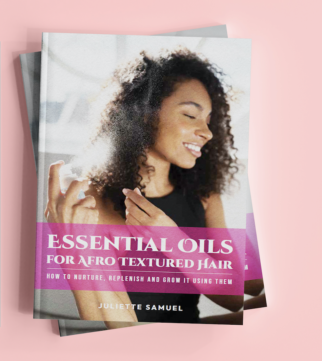 African American Skin and The Sun
African American Skin and The Sun
Avoiding sun damage in African American Skin can be daunting. Dark complexions have both advantages and disadvantages when it comes to sun exposure.
It’s often thought that, dark skin is less likely to experience sunburn and develop skin cancer. This is far from the truth.
Because of your beautiful dark complexion, you could overlook signs of skin cancer. Since dark skin naturally offers UV-protection, it prevents people from absorbing an adequate threshold of vitamin D.
African American skin is typically higher in its melanin level, which basically protects your skin from easily burning. In fact, as the level of melanin increases in your skin, so does the natural protection against sunburn. But even though a higher melanin concentration acts as a barrier against the sun, it still doesn’t prevent skin cancer.
In fact, the majority of African-Americans who have skin cancer do not catch it early enough, which is why fatality rates related to skin cancer are higher among African-Americans as compared to other ethnic groups.
However, everyone needs some kind of sun exposure in order to produce vitamin D, also referred to as the “sunshine vitamin”. Vitamin D helps provide your body with calcium absorption, thereby maintaining bone density and preventing osteoporosis. In addition to that, it also helps fight against diabetes, heart disease, rheumatoid arthritis, and cancer.
Unfortunately, the high melanin level in African-Americans makes it harder for them to produce vitamin D from sunlight. Even though vitamin D is critical for your health, you should always take the following summer skin care tips into account when spending extended periods of time outside in the sun.
Use Sunscreen
As mentioned above, though darker skin has natural sun protection properties, it might not be sufficient enough for a day out in the sun. The darker your skin, getting sunburned will usually take around two hours of unprotected exposure to the sun. For maximum protection at the beach, slather on a sunscreen with an SPF 15. When applying sunscreen, be generous and make sure to cover all the areas, including your feet and hands.
Aside from applying it properly, make sure to reapply it every two hours or so, especially if you are sweating or swimming. Also, be extra careful around sand and water, since these surfaces reflect the harmful sun rays, which can increase your chances of getting sunburned.
Keep in mind that powders, wipes, and sprays are not deemed effective by the FDA, so stick to the more traditional creams, lotions, and ointments. As for sprays, some researchers believe that if you inhale the spray, it could be potentially dangerous. So, if you are going with a spraying product, make sure to first test it out on your hands rather than using it directly on your face. If the hand-test is cleared, you can proceed to use the product onto the face.
Facial moisturizers can often have built in sunscreens. These sunscreens are not made for total body usage, so keep that in mind when purchasing your products. You don’t want to slather your $40 plus moisturizer all over your body.
Cover up
Besides applying regular sunscreen, take into account other protection measures that will optimize the results. Wear long sleeves and pants when working outdoors and shield your eyes against the rays with sunglasses and your face with wide-brim hats. You can also use umbrellas when taking long walks on the beach or even when walking outside.
Dark clothes made out of tightly woven fabric blocks more sun rays as compared to loosely woven or white fabrics. For extra protection, you can go for clothes are specifically designed to block sun rays and made with sun-protective materials. When picking sunglasses, go for lenses that have 99% to 100% UV absorption rate.
Get Checked
As per a 2009 survey carried out by the Journal of the American Medical Association Dermatology, 65 participants out of the 100 were believed to not be at a risk for developing cancer and admitted to getting unprotected sun exposure. The participants came from the Asian, Hispanic and African-American descent.
Many dark-skinned folks avoid seeing a dermatologist and do not get checked on a frequent basis. By the time abnormalities are detected, cancer has generally gone out of hand and becomes more difficult to treat. However, if detected early on, skin cancer can be easily cured.
Lastly, limit the amount of time you spend in the sun and try staying indoors during the peak hot hours (10:00 am to 4:00 pm).
These are just some of the steps to take to avoid skin damage in African American skin and also keep it in optimum health.
That’s it for this week. As always …
Dedicated To Your Beauty
Juliette Samuel
Aesthetician/Author/Publisher




 Facebook
Facebook Twitter
Twitter Delicious
Delicious Digg
Digg Myspace
Myspace StumbleUpon
StumbleUpon Youtube
Youtube